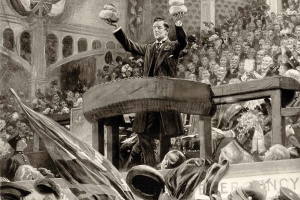To Be or Not To Be Remembered
COMMEMORATING THE BARD OF STRATFORD
William Shakespeare (1564–1616) is today universally acknowledged as among the greatest exponents of the English language and perhaps the finest dramatist of all time.
Yet the man from Stratford-upon-Avon has had his downs as well as his ups.
In the first half of the eighteenth century opinions were considerably more mixed than they are currently as to the quality of Shakespeare’s writing. Classically trained critics reprimanded him for ignoring the ‘Aristotelian Unities’ of time and place, and for introducing buffoonery and tavern humour into the serious domain of history and tragedy. Even Samuel Johnson (1709-1784), more of an admirer than most of his era, regretted that the bard’s treasure-house was ‘clouded by incrustations, debased by impurities and mingled with a mass of meaner minerals’.
In his home town too Shakespeare was having his setbacks. In 1756 the Reverend Francis Gastrell, owner of New Place - the house in which the playwright had breathed his last - tired of the procession of tourists knocking on his door and chopped down the famous mulberry tree said to have been planted by the bard. Three years later he demolished the house as well.
KEYWORDS: Shakespeare, Stratford upon Avon, Theatre, David Garrick
Download the Full Article (PDF)Categories:
Books from History West Midlands

Fortunes of War:
The West Midlands at the Time of Waterloo
In Andrew Watts, Emma Tyler, Andrew Watts, Emma Tyler, Waterloo, Military,
Buy Now £7.99
More from History West Midlands

Words on The West Midlands
In Word,

Local Landscape in the Novels of Francis Brett Young
In Word, University,

From Shakespeare to Tolkien
WRITERS OF THE REGION
In Word,
